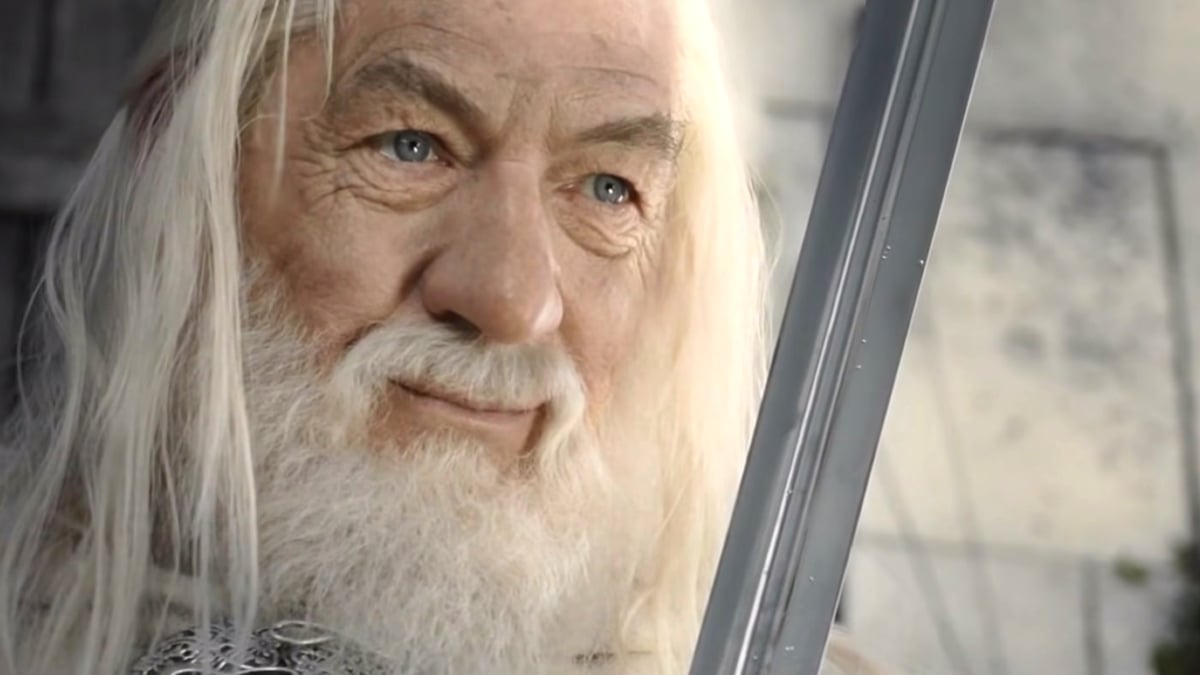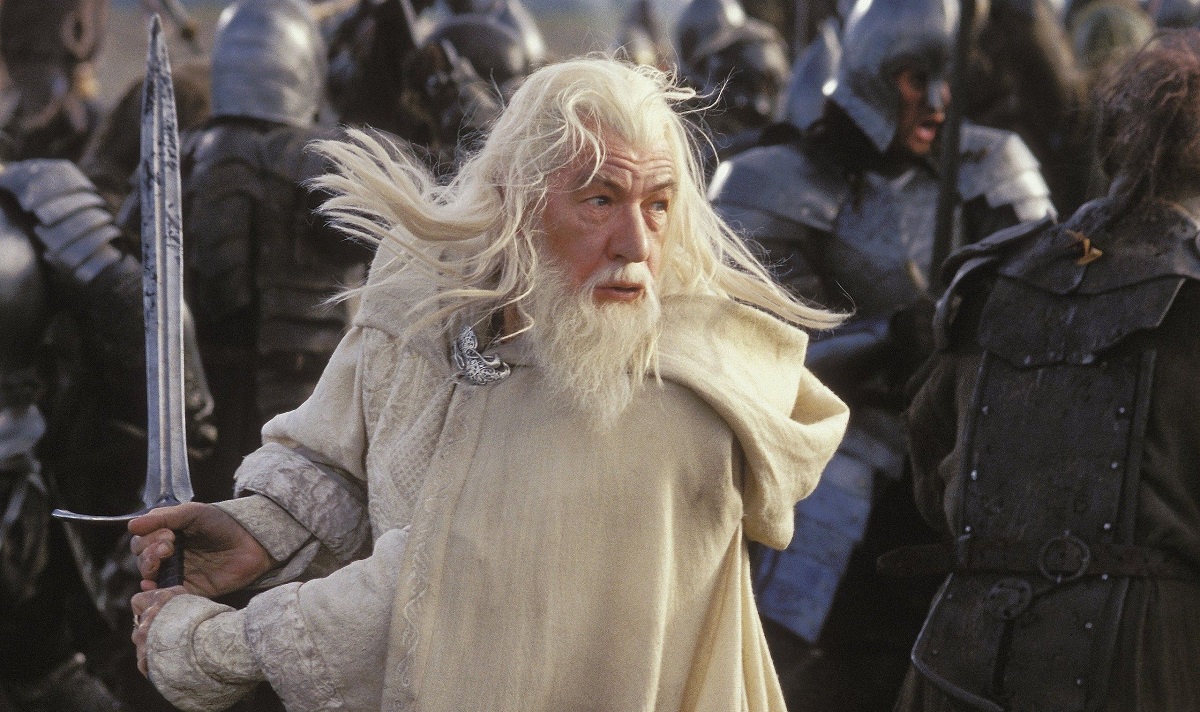More than 20 years have passed since the Lord of the Rings films were first released, but Peter Jackson’s trilogy remains a favorite amongst moviegoers. Over the course of three gorgeous releases — and then a full trilogy of prequels — Jackson led a talented cast through the process of introducing and fleshing out a rich, wondrous world full of elves, dwarves, Hobbits, and dragons.
One character was there through each of the six films set in Middle-earth, despite the decades that pass between each trilogy’s setting. Gandalf the Grey — later known as Gandalf the White — is a mainstay in J.R.R. Tolkien’s world, proving himself time and again to be a wise and capable guide, advisor, and companion.
The transformation that Gandalf undergoes in the second Lord of the Rings film, following his fall in the Mines of Moria, remains a confusing part of his journey for many viewers. Experts on Tolkien’s fascinating, but often dense, lore are well aware of how the fan-favorite wizard cinched his promotion, but many casual viewers remain uncertain.
Who is Gandalf?

Gandalf’s transformation from “the Grey” to “the White” happens off-screen, for the most part, leaving a number of viewers perplexed as to how the wizard made the shift. A bit of background, lovingly crafted by Tolkien and scattered throughout his many releases, helps provide context for the metamorphosis.
Gandalf is one of the Maiar, a collection of primordial spirits sent to join the Valar in their efforts to shape the world. He was there from the very beginning, helping to make changes as the world slowly developed, and is widely considered the wisest of his kind.
He, along with four other Maiar, eventually became the five incarnated wizards — or Istari — we know from the books. Three of these wizards — Gandalf, Saruman, and Radagast — make appearances in the Lord of the Rings and Hobbit films.
How else was Gandalf known?

The being that eventually became Gandalf the Grey was once known by other names, some of which crop up in popular Lord of the Rings releases. He became known by his primary moniker through the Hobbit trilogy and Fellowship of the Ring following the inception of the Third Age, cloaking himself in tattered grey robes and taking on the appearance of an elderly man in hopes of concealing his true power from the world.
His somewhat shabby appearance is entirely purposeful — as is Radagast’s — and helps to separate these cautious, humble wizards from their far more conceited counterparts.
How did Gandalf the Grey become Gandalf the White?

Following Gandalf’s battle with the Balrog, which sees both ancient beings plummet into the depths of the Mines of Moria, he was reborn as Gandalf the White. This transformation was prompted by a number of things, the first of which was Saruman’s betrayal.
Once the leader of the Istari order and of the White Council, Saruman’s will was gradually corrupted during his time in Middle-earth. He eventually becomes seduced by the dark side, as it were — Christopher Lee has a weakness for it, apparently — as he senses Sauron’s power growing from afar. He eventually became a willing slave to Sauron’s will, forming a massive Orc army in preparation for what he saw as an inevitable war.
Saruman’s treachery eventually comes to light and prompts his ejection from the White Council and Istari order. By this time he had already rebranded himself as Saruman of the Many Colors — in proper Pride Month fashion — leaving the coveted position at the head of the White Council vacant. Gandalf eventually stepped in to fill this role.
The second factor that contributed to Gandalf’s transformation came after his death at the hands of the Balrog. While Gandalf did manage to defeat the ancient beast, he too fell following their lengthy battle, straying “out of thought and time.” He remained tethered to Middle-earth, even as his spirit wandered, and the wounded wizard was eventually brought to Lothlórien. There, the elves saw his wounds healed and draped Gandalf in white, presenting him with a new, powerful staff to aid in his continued service to Middle-earth.
Thus, he became Gandalf the White, elevated in his position in the White Council, and the last remaining Valar emissary in Middle-earth. This heightened position also allowed Gandalf to unveil more of his hidden Maiar power but never swayed him from his original mission: to aid and empower the people of Middle-earth and to see the evil of Sauron permanently purged from the land he loves.

